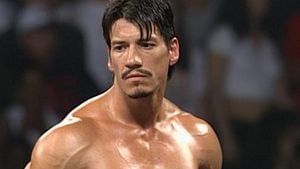As 2025 unfolds, the liquor retail industry is poised for a revival, thanks to easing economic pressures and a resurgence in consumer confidence. According to Circana’s Rewired: Finding Growth in the Future of Retail Outlook Report, the key to success this year lies in understanding the evolving mindset of modern shoppers, who are increasingly seeking escapism, aspiration, and proactive self-care.
In an exclusive interview with National Liquor News, Alistair Leathwood, Head of Media Analytics and Insights at Circana, shared insights into how liquor retailers can navigate these shifting demands. He emphasized that nostalgia and escapism are powerful tools for brands. “Liquor brands can leverage nostalgia by reviving classic packaging and recipes that evoke fond memories and a sense of familiarity among consumers,” Leathwood noted. This approach not only fosters trust but also taps into the desire for comfort during uncertain times.
To capitalize on this trend, retailers can curate nostalgic shelf experiences by prominently featuring heritage brands and organizing retro-style promotional events. Such strategies create a deeper emotional connection with consumers, allowing brands to stand out in a competitive market.
As dining out remains an occasional luxury for many, liquor retailers have a unique opportunity to enhance at-home experiences. “Retailers can inspire customers by curating exclusive tasting events and offering high-quality, informative content that showcases the craftsmanship and unique qualities of premium spirits,” Leathwood suggested. By providing expert tips on serving and pairing, retailers can elevate the at-home drinking experience, transforming it into a luxurious event.
Furthermore, the rise of proactive self-care is reshaping consumer habits. More Australians are seeking mindful choices without sacrificing enjoyment. Leathwood pointed out that liquor retailers can meet this demand by diversifying their offerings. “Retailers can tap into the proactive self-care trend by introducing low-alcohol and alcohol-free options that cater to health-conscious consumers,” he explained. Highlighting products that are low in sugar or carbs aligns with the current self-care ethos, which combines personal wellness with environmental responsibility.
Personalization is another crucial factor in the evolving liquor market. With competition intensifying, the ability to deliver hyper-personalized experiences will set successful retailers apart. Leathwood emphasized that data analytics is key to this process. “Liquor retailers can harness data analytics to gain deep insights into consumer preferences and behaviors, enabling them to predict trends and tailor their offerings accordingly,” he stated. By leveraging customer data, retailers can create personalized recommendations and targeted marketing campaigns that enhance the shopping experience.
As the economic landscape improves, Leathwood underscored the urgency for brands and retailers to act now to position themselves for long-term success. “Optimizing the experience economy is key as shoppers want ultimate value from their purchasing decisions,” he remarked. This year presents a unique opportunity for liquor retailers to combine data insights with experiential retail and values-based marketing, transforming themselves from mere suppliers to trusted partners in customers’ lifestyles.
Key takeaways for liquor retailers include leveraging nostalgia through heritage brands, enhancing at-home experiences with premium products, expanding wellness offerings with low-alcohol options, personalizing the customer journey using data, and creating immersive in-store experiences that engage customers. Staying agile and values-driven by aligning with consumer priorities like sustainability and ethical sourcing will be critical for long-term loyalty.
Meanwhile, the travel sector is also experiencing significant shifts. Following the launch of Luxury Escapes’ new loyalty and rewards program, Société, CEO Adam Schwab discussed the changing landscape of Australian travel. In an interview, Schwab noted that travelers are becoming increasingly savvy and price-conscious, with a strong pivot toward immersive experiences. “Travel demand has been interesting this year – travellers are becoming increasingly savvy and price conscious,” he observed. A remarkable 58% of Australians prioritize exploring new places, while only 9% express a desire to revisit familiar destinations.
Luxury Escapes launched its LuxPlus program last year and Société in April 2025 to provide better value for discerning travelers. According to Schwab, the goal is to cater to the growing demand for unique experiences. “Today’s travellers are looking for more than a room – they want connection, discovery, and unique, localized moments,” he explained. This shift reflects a broader trend where travelers are seeking adventure and cultural immersion over routine vacations.
When it comes to sustainability, Schwab remarked that while many travelers express concern about eco-friendly options, actual purchasing decisions often prioritize amenities over sustainability. “It feels like travellers are all for sustainability but often don’t want to pay for it,” he noted. This insight suggests a complex relationship between consumer values and spending habits.
Luxury Escapes’ Travel Trends survey reveals that 39% of travelers show strong interest in food tourism, 38% in immersive cultural experiences, and 30% in wellness travel. These insights have informed the benefits offered through the Société loyalty program, which includes perks like chauffeur-driven transfers and lounge access for loyal customers.
As for international travel, Luxury Escapes’ data highlights Japan as the most popular holiday destination for 2025, thanks in part to a favorable exchange rate. Bali and Thailand remain favored spots, while Vietnam continues to attract strong interest. Schwab also noted a growing demand for travel to Hawaii and mainland USA as the US dollar shows signs of weakness.
In terms of loyalty offerings, Schwab emphasized the frustrations travelers face with redeeming points across various airline loyalty schemes. To address this, Société was designed to simplify the process, allowing members to use points on all Luxury Escapes products, including exclusive offers. “Everything is guaranteed – you don’t have to cross your fingers and hope for an upgrade,” he stated, highlighting the program's user-friendly approach.
As 2025 progresses, both the liquor and travel industries are adapting to the evolving preferences of consumers. By embracing nostalgia, personalizing experiences, and prioritizing sustainability, brands can not only survive but thrive in this dynamic landscape.




